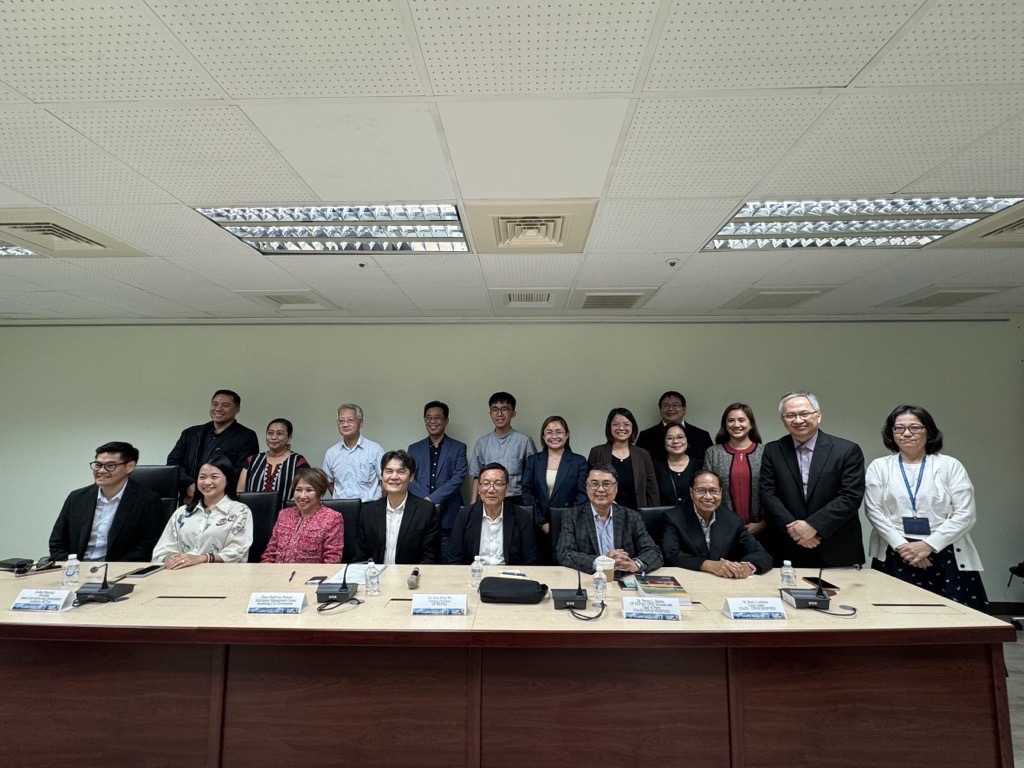Delegation from the Philippines' Bases Conversion and Development Authority (BCDA) and the United States Agency for International Development (USAID) visited the Kaohsiung City Government August 1st to learn from Kaohsiung's experience in promoting urban digital and net-zero two-way transformation. Aims to apply these insights to the New Clark City project in northern Manila. After visiting Kaohsiung in person, the delegation members expressed strong approval of Kaohsiung's transformation from a traditional heavy industry city into a technological, attractive, resilient, and sustainable livable city.
Originating from this year's (2024) Smart City Summit & Expo in Kaohsiung in March, USAID, which is a development partner of BCDA, also organized a delegation to visit Kaohsiung. They were deeply impressed by Kaohsiung's human-centric smart city development trajectory. As a result, when Deputy Mayor Charles Lin represented Kaohsiung at the annual conference of the Vice Mayors' League of the Philippines (VMLP) and delivered a keynote speech, the Philippine side also arranged for the BCDA team to meet and exchange ideas with the Kaohsiung City Government, leading to this visit.
During this visit, the BCDA and USAID delegation toured the Smart Transportation Center, Lingya Sports Center, Weiwuying (National Kaohsiung Center for the Arts), and cold chain system integration company. They also attended briefings on urban development planning by the Urban Development Bureau, Economic Development Bureau, and Information Center. The delegation was deeply impressed by various aspects, including the diverse integration of transportation networks, healthcare systems, water resource management, digital twin city governance and other infrastructure projects. They were also struck by the cultural landscape, such as the development of Asia New Bay Area with its urban aesthetics and the light rail green corridor. These experiences are expected to contribute to the realization of their vision for the New Clark City development
The Research, Development and Evaluation Commission stated that Kaohsiung City is willing to exchange and share smart technology applications and solutions in various fields with other cities. Given the geographical proximity between Kaohsiung and the Philippines, and their similar climate and environment, there is potential for long-term cooperation in areas such as urban governance, economic and trade collaboration, and academic exchanges. The Commission expressed hope for continued establishment of a lasting cooperative relationship between the two sides.
Elvira Estanislao, Senior Vice President of BCDA, stated that New Clark City has successfully attracted investments from countries such as the United States, Japan, and South Korea, with a particular focus on smart city development and resilient infrastructure. Their visit to Kaohsiung aimed to learn how to create a convenient and safe living environment for citizens while balancing historical culture with urban development. She expressed that the visit was eye-opening and left a deep impression. Notably, the visit coincided with Taiwan's recovery from the extreme rainfall brought by Typhoon Kemi. Kaohsiung's demonstration of urban resilience through rapid cleanup of the city and efforts to restore normal life for citizens as soon as possible was something they hoped the Philippines could learn from.
Kaohsiung promotes public-private partnerships in smart city development, collaborating with technology companies to address common urban governance challenges. These include enhancing urban mobility, water resource management, improving urban resilience, clean energy, and waste management. The city aims to create smart solutions and further export them internationally.
Currently, major cities in Southeast Asia are facing explosive population growth, with urban governance services, management, and infrastructure struggling to keep pace. There is an urgent need to introduce smart technologies to assist in solving governance issues, indicating vast business opportunities for mature, integrated smart solutions.
Kaohsiung's climate and geographical environment are similar to Southeast Asian cities, making it strategically competitive in promoting smart city cooperation. Taiwan's highly competitive high-tech industries and quality infrastructure possess infinite potential for international export of smart city solutions. This international city exchange and study tour by the Philippine delegation symbolizes the strategic significance of Kaohsiung's ability to develop overseas export opportunities.
Particularly, Kaohsiung's similarity in climate and geographical environment to Southeast Asian cities gives it a strategic advantage in promoting smart city cooperation. Taiwan's highly competitive high-tech industries and quality infrastructure demonstrate immense potential for the international export of smart city solutions. This international city exchange and study tour by the Philippine delegation symbolizes the strategic importance of Kaohsiung's capacity to develop overseas export opportunities.
Background information: The Bases Conversion and Development Authority (BCDA) of the Philippines was established in 1992. Its responsibility is to assist in the conversion of Philippine military bases into economic development zones through public-private partnerships. For example, Bonifacio Global City (BGC) in the central part of Metro Manila and the Subic Bay Freeport Zone are successful cases where BCDA has transformed former U.S. military bases and profited through joint development with private enterprises. BCDA's main mission is to promote economic growth in the Philippines, create job opportunities, and assist in the urban infrastructure and development needed for base conversion.
